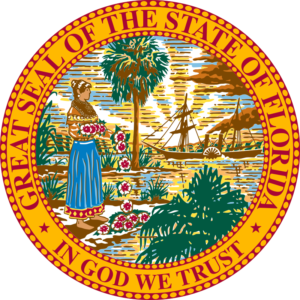Ward Law LLC is dedicated to keeping our clients informed about all things COVID-19 related. Our business is to ensure that you have all the information you need to keep your business going. In that regard, please read below for updates on the State of Florida.
COVID-19 Florida Update
Over the past 2 weeks, there have been a considerable number of measures instituted by the federal government and many state and local governments. These vary widely, but overall aim to mitigate the spread of the COVID-19 virus and provide assistance to employers and employees who are negatively affected by either the virus or the regulations put in place to combat the virus – such as orders to close public businesses, etc.
In Florida, there has not been really any significant legislation on the state level to address the current virus situation. In places like New York, which has been much more significantly affected at this point, there have been state and local laws and regulations passed to, for example, provide relief to employers and employees, among others. There have been bans on travel and gathering, and outright lockdowns in many states. Florida Governor Ron DeSantis has thus far refused to take what he deems to be drastic and unnecessary steps such as stay-at-home orders or closing of beaches. He has faced considerable backlash for these responses, and many have called upon him to act more aggressively, including at least one member of his cabinet. Not wanting to wait for certain action, local governments have taken it upon themselves to fill in the blanks on mitigation. Counties such as Pinellas, Manatee, Sarasota, Miami-Dade and Flagler beaches have closed, as well as several cities. Others remain open, such as Volusia County. Many local governments have issued stay-at-home orders such as Orange County, Osceola County, Alachua County, and Miami-Dade County. In conjunction, many have ordered that non-essential businesses be shut down. What constitutes a non-essential business will depend on the jurisdiction. Most areas with these orders in effect will have lists of essential businesses posted online.
What the Governor has done is taken less-strict and/or incremental measures to mitigate the virus spread by issuance of several executive orders. He has ordered the closure of bars and nightclubs for 30 days, directed that gatherings at beaches be limited to 10 people, closure of state parks, and closure of restaurant dining rooms. Interestingly, he initially ordered that restaurant dining rooms be limited to 50 percent capacity rather than issuing an outright closure. Elective medical procedures have been halted, and gyms and fitness centers have been closed with some exceptions. After facing nationwide criticism following news outlet stories of spring breakers packing Florida beaches, it was announced that state parks would be closed.
So, where is Florida in terms of relief for employers and employees? Basically, on the state level, Florida is relying on programs that existed prior to the COVID-19 spread. Employees who have been forced to quarantine or been laid off due to COVID-19 can turn to state unemployment programs and reemployment assistance. Additionally, applicants do not necessarily need to be out of work. The Florida Department of Economic Opportunity indicates that workers whose hours were reduced due to the virus are also eligible for reemployment assistance.
Businesses who are negatively affected by the COVID-19 may apply for emergency bridge loans from the state. The Florida Small Business Emergency Bridge Loan Program was first activated following Hurricane Andrew in 1992. It has been activated 26 additional times following disasters and has been activated recently as a result of the current virus spread. The program allows business owners with two to 100 employees located in Florida to apply for short-term (1 year) zero interest loans up to $50,000, and possibly up to $100,000 in special circumstances. To be eligible, the business must have been established prior to March 9, 2020 and demonstrate economic impacts as a result of COVID-19.
As with before the virus, in the employment law arena, Florida closely follows or relies on federal statutes and legal precedent. The current virus outbreak appears to be no different. Congress, on the federal level, has passed the Families First Coronavirus Response Act, and a coronavirus stimulus awaits passage by the House of Representatives and signature of the President. Florida, at this time, does not appear to be pursuing its own equal or more comprehensive employment law expansions or employer/employee protections.
For any questions about the Florida law updates, please contact Ward Law attorney Jeremy Rogers any time.
